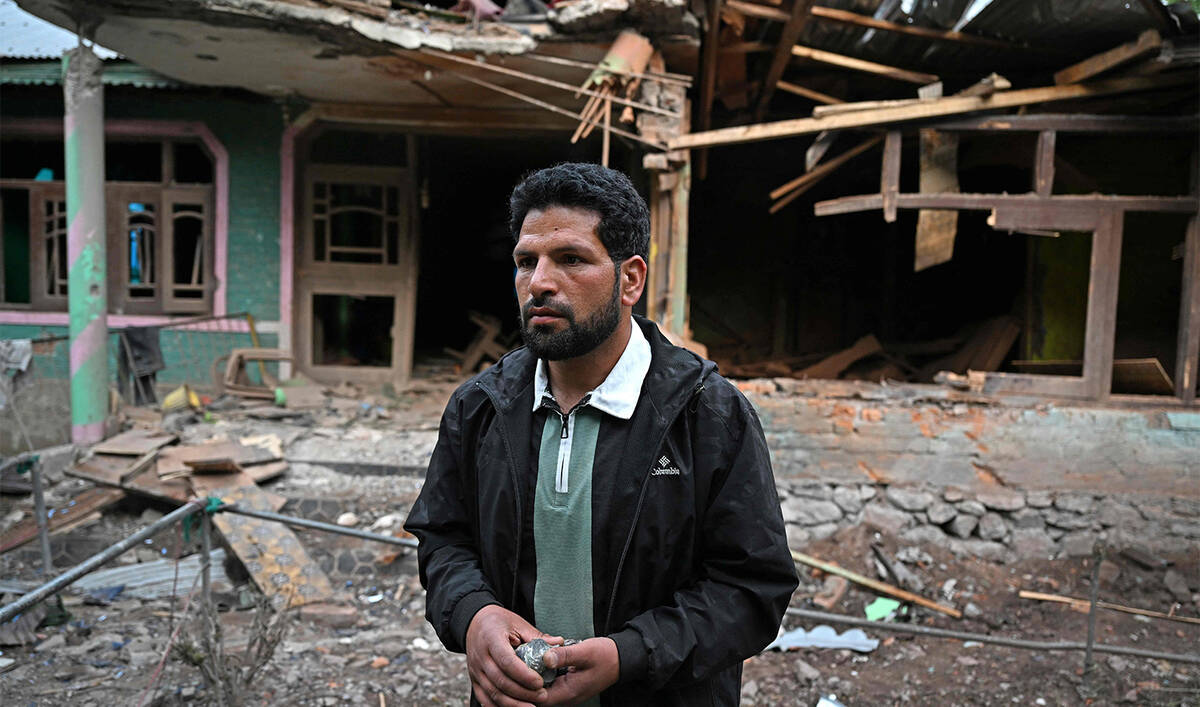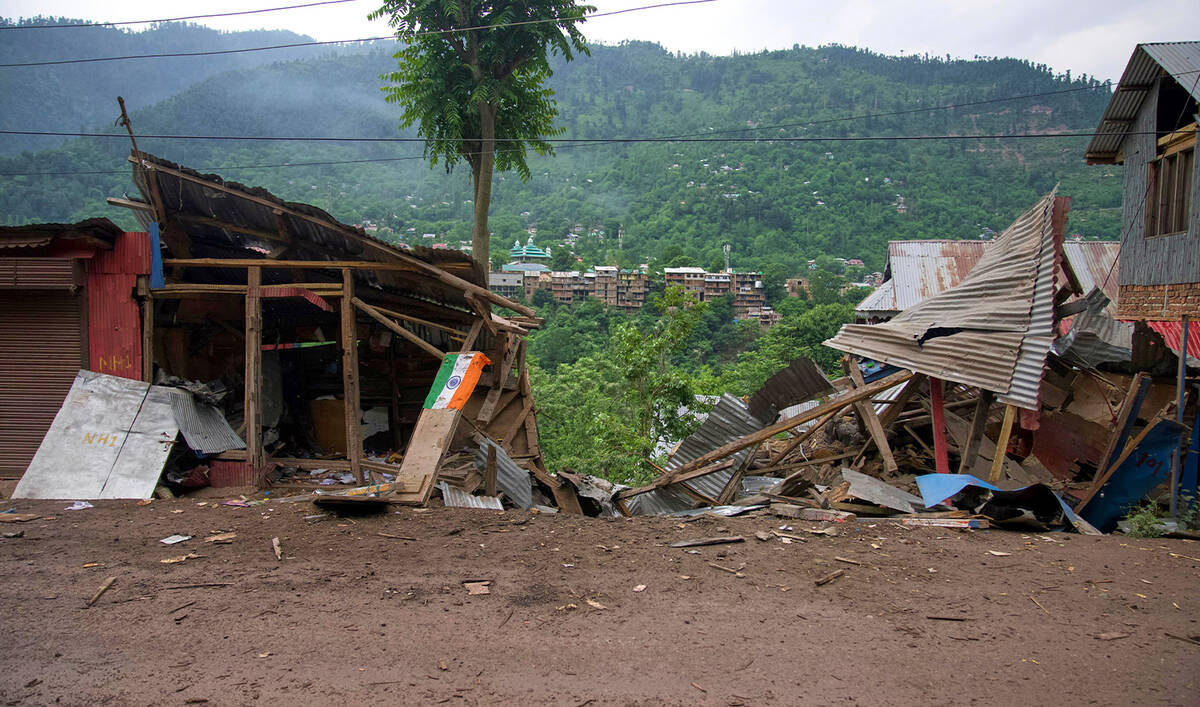URI, India: Mohammad Naseem says his neighbors laughed when he borrowed money and built a concrete bunker under his home in a village near the disputed Kashmir border.
But this week, when mortar bombs rained in Salamabad, 38 people — men, women, and children — huddled in it as about a dozen shells exploded outside in quick succession.
One of them destroyed Naseem’s home.
“Many of us would have died had we not moved into the bunker,” Naseem, a 34-year-old hotel chef, told AFP.
“We grabbed our children and rushed inside. It got so packed that after some time we felt suffocated, two of our children became unconscious,” he said.
“The children had to be hospitalized after daybreak when the shelling stopped.”

Mohammad Naseem, a hotel chef speaks with AFP while holding a remnant in front of his house that was destroyed by mortar bombs, in Uri on May 8, 2025. (AFP)
Other villagers hid behind rocks and bushes on the mountain slopes. Some watched their homes being reduced to rubble.
Deadly confrontations between nuclear-armed India and Pakistan erupted after New Delhi accused Islamabad of backing an April 22 attack on tourists on the Indian-administered side of the disputed territory, which killed 26 people.
Pakistan denies the charge.
“We took our children out and went up the mountain slope holding them tightly as bombs exploded around us,” Naseer Ahmed Khan, 50, said outside his damaged house on Thursday.
“Our life is worth nothing. At any time, entire families could be wiped out,” Khan said. “Our children are not able to sleep and we cannot have a meal in peace.”
The exchange of heavy fire has destroyed or severely damaged dozens of homes in Uri, about 100 kilometers (66 miles) from the Kashmir capital Srinagar, forcing many to flee to safer areas in towns like Baramulla, about 50 kilometers away.
Sajjad Shafi, a local lawmaker told AFP that about 10 percent of Uri’s population — some 22,000 people — fled since the latest fighting began.
On Friday, many more were fleeing in buses and trucks provided by the government or driving off in their own cars.
“How can we stay here?” Rubina Begum said outside her destroyed home. “The government should lodge us somewhere safe.”

An Indian flag lies in front of a damaged shop following overnight shelling from Pakistan at Gingal village in Uri district, north of Srinagar in Indian-administered Kashmir, on May 9, 2025. (AP)
Begum’s daughter, Saima Talib, added: “We have nothing left except the clothes we are wearing.”
Displaced people are struggling to find food and work and many are now sheltering in government buildings in Uri.
Mohammad Lateef Bhat, a road construction worker, said: “I work as a laborer with army’s border roads organization but their work also stopped.”
“This morning I came to the market looking for work but there is nothing,” Bhat said.
Some vegetable sellers briefly set up shop before closing.
Mohammad Bashir was also despondent.
“I came to the market to find some work so I can buy some food for my family (of eight) but there is nothing,” Bashir, 60, said.
The death toll from India and Pakistan’s biggest clashes in decades passed 50 on Friday with each accusing the other of staging drone attacks in waves.
Farooq Ahmed Khan, 35, a bus driver from Sultandhaki village near the border, said “this fighting has made our life miserable.”
Nagni, a rare mixed settlement of Muslims, Hindus and Sikhs, sits on mountain slopes near the Indian army’s border headquarters in Uri.
Villagers say 35 of the 50 families there have fled.
Badal, a 22-year-old student who only gave his first name, was cleaning up after his sister’s wedding at his freshly painted home.
He showed a crater caused by a mortar bomb that landed a few meters away on the night of the wedding.
“Luckily there was no loss of life but a lot of damage. What we need.. is bunkers, but there are none.”
“This village has always been a target of Pakistani attacks in the past because the (Indian) army headquarters are nearby,” said Sahil Kumar, another Nagni resident.
Locals say they are fed up.
“I say there should be a war just to decide where Kashmir goes,” said Farooq Ahmed Khan, the bus driver.
“I will also go to fight in that war so that this trouble ends for good,” Khan said.

























